Curate, connect, and discover
For Future Reference - Blog Posts
Resources For Describing Characters

Physical Appearance
Arms
Athletic Build
Back
Butts
Cheeks
Chest
Chins
Curvy Build
Ears
Eyebrows
Eyes
Faces
Facial Hair
Feet
Fingernails
Fingers
Hair
Hands
Head
Hips
Jaws
Knees
Legs
Lips
Muscular Build
Neck
Noses
Shoulders
Slender Build
Sickly Build
Skin
Stocky Build
Stomach
Teeth
Toenails
Toes
Underweight Build
Character Traits
Affectionate
Ambitious
Bossy
Brave
Calm
Cautious
Charismatic
Clever
Conceited
Courageous
Creative
Critical
Curious
Determined
Diplomatic
Dishonest
Disorganized
Eccentric
Excitable
Friendly
Funny
Generous
Glamorous
Guarded
Honest
Impulsive
Independent
Intelligent
Just
Kind
Loyal
Manipulative
Mature
Modest
Mysterious
Naïve
Optimistic
Prejudiced
Persistent
Proper
Responsible
Sensitive
Sentimental
Serious
Shy
Reckless
Stingy
Stubborn
Talented
Thoughtful
Thrifty
Visionary
Wise
Witty
Worry Wart
Wounded
Talents & Skills
A Knack for Languages
A Knack for Making Money
A Way with Animals
Archery
Astral Projection
Astrological Divination
Baking
Basic First Aid
Blending In
Carpentry
Charm
ESP (Clairvoyance)
Empathy
Enhanced Hearing
Enhanced Sense of Smell
Enhanced Taste Buds
Farming
Fishing
Foraging
Gaining the Trust of Others
Gaming
Gardening
Good Listening Skills
Haggling
Herbalism
Hospitality
Hot-Wiring a Car
High Pain Tolerance
Knife Throwing
Knowledge of Explosives
Lip-Reading
Lying
Making People Laugh
Mechanically Inclined
Mentalism
Mimicking
Multitasking
Musicality
Organization
Parkour
Photographic Memory
Predicting the Weather
Promotion
Psychokinesis
Reading People
Regeneration
Repurposing
Sculpting
Self-Defense
Sewing
Sharpshooting
Sleight-of-Hand
Strategic Thinking
Strong Breath Control
Super Strength
Survival Skills
Swift-footedness
Talking With The Dead
Throwing One’s Voice
Whittling
Wilderness Navigation
Wrestling
Elemental Abilities
Miscellaneous
Voices
Voice Types
Speech Patterns
Speech Impediment
List of Character Flaws
List of Archetypes
Hairstyles
Describing Body Types & How They Move Around
Secrets To Give Your Character
Support Wordsnstuff!
Request A Writing Help Post/Themed Playlist/Writing Tips!
Send Me Poetry To Feature On Our Instagram!
Receive Updates & Participate In Polls On Our Twitter!
Like us and share on Facebook!
Read More On Our Masterlist & See our Frequently Asked Questions!
Tag What You Want Me To See With #wordsnstuff!
Participate in monthly writing challenges!
thank you so very very much( that’s two very’s)









Hellooo, here are all my Rise of the tmnt refs!!
some fucking resources for all ur writing fuckin needs
body language masterlist
a translator that doesn’t eat ass like google translate does
a reverse dictionary for when ur brain freezes
550 words to say instead of fuckin said
638 character traits for when ur brain freezes again
some more body language help
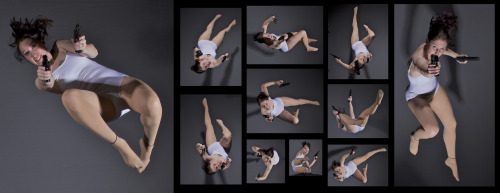

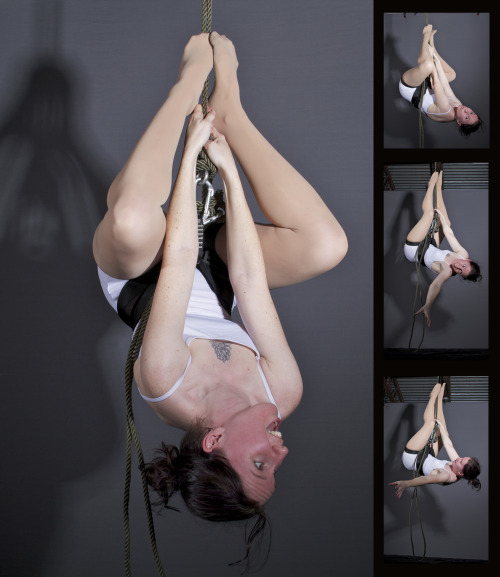



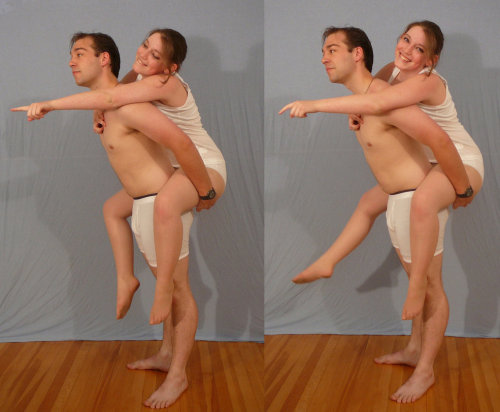
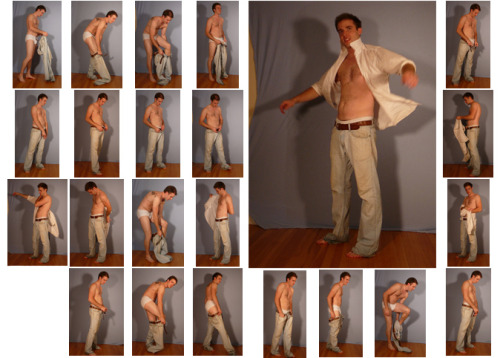
SenshiStock’s gallery consists of millions of pictures that are free to use as reference.
General Drawing Poses Sit and Kneel Dramatic and Reaching Drawing Poses Magic and Hogwarts Drawing Poses Staff Weapon Pose Reference Hammer, Axe and Bat Pose Reference Sword Weapon Drawing Reference Small Bladed Weapon Pose Reference Gun Weapon Pose Reference Bow and Arrow Archery Stock Foreshortening and Perspective Poses Dynamic Flying Falling Action Poses Deafeated or Laying Drawing Poses Magic Crystal Magical Girl Wand Weapon Transformations and Dance Cards Back Pose Reference Pin Up Inspired Poses for Drawing Performances Poses Life in General Poses Fights and Fighting Pose Reference Leaning Poses Classic Sailor Senshi Poses Wings Sailor Moon Villains Pairs Romance or Couples Pose Reference All the Male Stock Hanging Stock Drawing Reference Three or More Groups Instruments Mirrors Whip Technobabble
ATTENTION WRITERS
Google BetaBooks. Do it now. It’s the best damn thing EVER.

You just upload your manuscript, write out some questions for your beta readers to answer in each chapter, and invite readers to check out your book!
It’s SO easy!

You can even track your readers! It tells you when they last read, and what chapter they read!

Your beta readers can even highlight and react to the text!!!

There’s also this thing where you can search the website for available readers best suited for YOUR book!
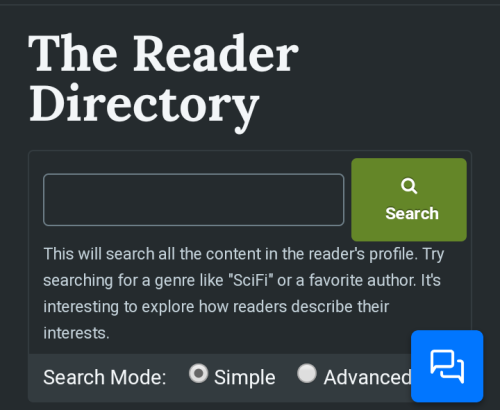
Seriously guys, BetaBooks is the most useful website in the whole world when it comes to beta reading, and… IT’S FREE.
why are star wars planets more boring than earth and our solar system like sure we’ve seen desert, snow, diff types of forest, beach, lava, rain, but like…

rainbow mountains (peru)

red soil (canada/PEI)

rings (saturn’s if they were on earth)

bioluminescent waves

northern lights (canada)


salt flats (bolivia, where they filmed crait but did NOTHING COOL WITH IT except red dust?? like??? come ON)

and cool fauna like the touch me not or like, you know, the venus flytrap.. and don’t get me started on BUGS like… we have bugs cooler than sw aliens
BASICALLY like???? come on star wars you had one (1) job where are the cool alien species
Looking for Something? (Mobile)
!!Note: For some reason, this list does not work on Apple devices, if anyone knows how to fix it, please message me it will help many people who could use these resources. Thank you -QueenSweeties
Anatomy:
Arms
Breasts
Body Types
Feet
Female
Hands
Heads -Ears -Expressions -Eyes -Facial -Hair -Mouths and Lips -Noses -Tears
Humans
Legs
Male
Muscles
Pelvis
Proportions
Shoulders
Torso
Animals:
Anatomy
Antlers
Beaks
Behaviour
Ears
Facial
Feathers
Fur
Hooves
Horns
Insects
Legs
Paws
Talons
Teeth
Wings
Backgrounds:
Cityscape
Indoors
Organic
Perspective
Quick BGs
Simplistic
Brushes:
Photoshop
Paint tool SAI
Design:
Buildings
Character Design
Clothing
Environments
Folds
Heights
Maps
Names
Sketching
Skin Tones
Drawing and Colouring:
Canvas Size
Colour Palettes
Colour Theory
Comics
Composition
Lighting
Lineart
Painting
Quick Tricks
Shading
Traditional
Fantasy:
Armor
Archery
Horns
Mythical Animals
Mythology
Power Ups
Weapons
Wings
For the Artist:
Copyright
File Types
Exercises
Portfolio
Reminders
Tablets
Tips and Advice
Tools
Languages:
ASL
Ancient
French
German
Grammar
Italian
Japanese
Korean
Morse
Spanish
Misc:
Animation
Commissions
Cosplay
Crafts
Life
Master Lists
Psychological
Resources
School
Writing
Nature:
Blood
Clouds
Fire
Flowers
Grass
Landscapes
Lightning
Metal
Plants
Rocks
Space
Trees
Water
Wood
Poses:
Angles
Animals
Draw Your X
Humans
Movement
Multiple Persons
Programs:
Clip Studio Paint
Krita
Paint Tool SAI
Photoshop
Etc
World Building:
Buildings
Culture
History
Historical Clothing
Video
Links
its just embarrassing when you make a fandom related post and it doesnt get any notes like okay. so no one want to play tuoys with me. no one wants to play with our little guys together. okay thats fine. yeah its cool... puts my hands in my jacket pockets. kicks a beer can that was on the side of the road a little
asenora, is it "shit" or "shite" that'd be the go-to for british teenagers in the 90s ;-; ?
this is basically my greatest fic-writing struggle rn, i speak american eng and have alr given in to the irresistible pull of "holy shit" (the phrase "holy shite" made my eyes water) and "bullshit" + am currently holding myself back by a Thread from "dogshit" (it's a ron pov and i just KNOW he'd overuse this if it was a part of his vocab)
my advice to american authors is to exclusively use "shit".
"shite" is used in ways which don't quite work by non-british/non-irish writers almost every time i see it, to be honest.
and the reason is that it's actually surprisingly complicated for such a little word. it's not an entirely straightforward synonym for "shit" - the usage heavily depends on context and the context heavily depends on things like regional dialect and factors [such as social class] which are often intertwined with it.
for example, in some parts of mainland britain "shite" is considered milder/more jovial than "shit"... so describing a film as "complete shite" is saying that it was so bad it was good and you enjoyed it, and saying "oh shite, i'm late" means you'll have to rush but you'll be fine.
in others, however, it would come across as stronger than "shit" - and so you'd be saying that you hated the film and had a terrible time, and that you're going to miss your plane.
"shit" - in contrast - means "shit". context clues can fill in how strongly it should be taken.
[my other profanity-related advice to american authors is to take however much swearing you think the characters would do and quadruple it...]
everyone talkin about the "Oh. Oh." revelation but can we refocus on "Oh no they're hot"
because alas. you're hot as fuck. i still despise you, but you're hot as fuck. all our interpersonal actions are gonna erotically tinged from here on out. it won't change anything plot-related but now i hafta be aware of it
they both do this to each other btw, draco even started it. in his mind ron occupies a space scarily adjacent to beloved little pet.
draco, mentally, while stroking ron's hair: i've always wanted a puppy.
"It worried Ron sometimes, and the uncomfortable, hard edge of it pressed up against his side even when he wasn't-- that Draco only kept agreeing to these meetings not (only) out of obligation, but because he viewed him as some petty form of entertainment. A talking, dancing monkey in a long line of dancing monkeys, that he deigned to wave a hand at and let amuse him after he grew bored, of-- of swimming in a massive pool filled to the brim with his own Galleons, or whatever it is rich bastards did in their free time.
hell, the way he looked at him sometimes, undeniably fond, but exactly in the way you'd look at a pet that just did something cute-- the way he put his hands on him, how he liked to curl one around the back of his neck to prompt Ron to look up at him, then thread it in his hair and keep it there, proprietary."
draco is incredibly touch starved, obviously (we're going off of pure canon where it's clear he has no real friends, and his parents aren't exactly . . huggers), and so what ends up happening eventually is that ron just takes to petting him like he's a damn dog:
i'd like to highlight specially the scenes above where ppl just freaking, rub a hand over the entirety of will's face, bc first off wth, and second off draco would LIVE for that shit he is so pathetic wet car.
and they cuddle. obviously. draco is clingy asf. as they bond he takes to standing with his arm around ron's waist whenever they're next to each other, specifically bc ron's taller and he thinks thats awesome, actually
Snape Fic Recs for the Sneptical & Snurious
I mostly run in marauders-centric circles where Snape is largely ignored or treated like an incel, and eventually it gets boring. Boring! The worst sin in fandom! He's an interesting guy and there are SO many amazing fics featuring him.
(That said, I do think that Snape, James, and Sirius would all be thrilled that their beef has continued onto the internet in 2025 and that thought delights me even as the discourse grows tedious.)
These are just a few I've enjoyed in the past couple months as someone who doesn't generally read a lot of Snape-centric fics and who has zero tolerance for Lily bashing. (Sorry this basically became a @saintsenara rec list because I've been binging)
i hope this comes back to haunt you by humanveil (29k, M)
Severus Snape, from first curse to first kill. Or: The making of a Death Eater.
The first Snape-centric fic I read in years, and it's such a good starting point for my fellow Snurious Sneptics. Snape's voice shines through -- resentful, angry, hungry, curious, brilliant -- and his relationships with so many other characters (Lily, Narcissa, his parents) are just brilliantly portrayed.
Scylla and Charybdis by Asenora (64k WIP, E, Severus/Voldemort)
Severus Snape is looking for somewhere - anywhere - to belong. He makes the wrong choice.
The political worldbuilding! The politics! The humanity! The snarky, darkly hilarious Snape voice! This is a fic where the first war really feels like a war with complex politics -- while also completely avoiding that boring trope of 'what if the DEs were right actually??' Everyone is a human, politics is about material reality, and Voldemort is awful. Snape's desire to belong is so physically palpable as you read that it's almost painful.
The War of the Roses by Asenora (51k WIP, E, Sirius/Severus)
Sirius Black does not die. But this does not mean that it is easy for him to live. Or: a butterfly flaps its wings and Sirius does not go to the Department of Mysteries. What follows from that twist of fate is a story about the long, destructive shadow of a schoolboy rivalry; a story about surviving, and how surviving is sometimes more difficult than dying; a story about the fragility of beauty, the gentleness of hope, and the value of choice. It is also a love story.
The fic that made me start binging all of Asenora's work. It's Sirius POV so perhaps a good place to start for my fellow Sirius-obsessives, and the way his experience in Azkaban both haunts him and has deep, real physical ramifications is so painful and compelling to read. Plus because he lives he gets to have a more complex relationship with Harry! Snape has very nice hands and Sirius's fantasies about him are definitely not sexual at all nope nope nope.
Two Boys Kissing by Writcraft (7k, M, Sirius/Severus)
Sirius goes to a gay bar and meets the last person he expects. Under cloudy skies, two boys kiss and that one moment comes to define generations of want, need and hope.
Bittersweet and darling.
A Yultide Tradition by kelly_chambliss (300 words, G, Severus & Minerva)
On Christmas night, Severus Snape relies on tradition.
A mournful bite of a triple drabble.
Plus: bonuses all the way from 2006 Livejournal!
Five Fragments of an Obsidian Heart (Severus/Regulus) & the entire 7Spells series
Reading these fics as a teenager genuinely saved me I think. Very dark and includes a lot of Blackcest and sexual violence and written pre-DH as a heads up. I remember being so invested in this particular version of Snape, and then DH came out and promptly lost all interest in him when his backstory wasn't as interesting as the ones I read on LJ. There's a real old school feel which I can't quite put my finger on, but I definitely recommend them if you like dark and if you like fandom history.
have def prolly rebloged this before but i keep coming back to it bc it's like my holy grail of succinct character study/ship analysis 💞💞💞
was the last nail in the coffin for me to start writing out the dron 6th year au that's been floating around my head for months, can't thank you enough!!!
asenora i will listen to anything you have to say about these characters ever. please tell us what the tea is with dron
as i rummage through the backlog of messages in my inbox the thing that i have discovered is that you girlies [gender neutral] are absolutely clamouring for citizenship of dron nation.




[thank you to @spectral-kitty, @thesilverstarling, and two mystery anons!]
to which i say, the borders are open, baby. you just have to read the following manifesto:
why fandom needs to stop sleeping on dron
something i am continually banging on about, as regular readers know, is the harry potter series' fondness for assigning [male] characters to narrative mirror pairings.
exploring these pairings is interesting in and of itself without a romantic dimension being involved - i could talk for hours about the mirrored approach to guilt and grief in snape and sirius' characterisation - but it's also true that several of the most interesting ships which can be drawn [however non-canonically] from the text are between the two halves of each mirror pairing.
tomarrymort is the obvious one, snack [or starprince or snirius or whatever we're calling it] is starting to get the attention it deserves, but people are still sleeping on draco malfoy/ron weasley [and also, may i say, on lucius malfoy/arthur weasley and narcissa malfoy/molly weasley], largely - i fear - due to the sheer popularity of drarry and dramione.
i'll be honest that i really don't like dramione, and i'm generally ambivalent towards drarry, but i do love dron. and the narrative mirror aspect is entirely the reason why.
ron and draco begin the series as mirror archetypes within the genre conventions of a children's boarding school romp. ron is the loyal, humble sidekick of the everyman protagonist, draco is the everyman protagonist's posh, stuck-up rival. both are insiders to the world of the story - whereas harry, the reader surrogate, is not - who introduce harry to the positive and negative aspects of the wizarding world respectively.
as a result, ron and draco are mirrors in terms of personality, and are much more similar to each other than either is to harry or hermione. this doesn't, of course, preclude ronarry [a ship i adore] or romione [which i've defended here] or drarry or dramione [if ya nasty], but it introduces a specific - and very interesting - tension into the pairing which is absent from these other ships.
both ron and draco have shared positive traits - they're both loyal [and their loyalty is very practical and pragmatic - ron is not hagrid, whose faith in e.g. dumbledore is totally unwavering; draco is not bellatrix, whose faith in voldemort is the same], they're both highly observant, they're both quick-witted, they're both capable of doing the right thing - if not always immediately [which is, in fact, more admirable than being preternaturally willing to suffer and sacrifice], and so on.
they also have shared negative traits. they're both attention-seeking [ron fucking loves nearly being knifed by sirius and you just know draco was seething], self-aggrandising, insecure, sulky, and predisposed to jealousy.
and this is a gift for authors, because it means that dron butt heads in a relationship in ways which allow for real character growth... or otherwise.
one issue that i have with drarry is that it often feels like the change either one goes through within a fic is kind of out of character. for example, you have a harry who feels insecure and haunted by his ill-treatment of draco [this is a man whose response to committing attempted murder is to be raging that it reduces the time he has free to hit on ginny], or a harry who is chasing after a cool and sophisticated draco who eventually learns to open up [whereas if there's two things draco isn't, it's someone who keeps his thoughts to himself and someone who isn't a distinctly unsophisticated flop].
dron, however, react to conflict in the same way - which means that the two of them finding themselves in conflict with each other absolutely slaps. they also have similar levels of emotional intelligence, and are likely - if they're inclined to - to be able to communicate with each other and work through issues surprisingly effectively. they can be a mess, or they can be a happy-ever-after, and i like that in a ship.
but, while ron and draco are mirror archetypes, they are specifically children's literature mirror archetypes. ron's role as harry's guide to the world diminishes in the later books, as the series' horizons move beyond hogwarts to think about wizarding society and voldemort's impact upon it more widely [he is replaced by characters such as dumbledore]; while harry becomes considerably less bothered by the pettiness of draco's rivalry with him [concerned as it is with things like being good at quidditch and getting away with misbehaviour at school] as the enemies he's focused on shift to being the resurrected voldemort and his death eaters.
which is to say that dron makes considerably more sense within a hogwarts setting than drarry.
as i've said elsewhere, an issue i have with drarry is that it's frequently written in a way which suggests that harry and draco have a mutual obsession with each other - while the actual evidence of canon is that, while draco is [as his archetype demands] preoccupied with what harry's doing, harry rarely gives the impression of caring what his rival is up to unless directly compelled to by draco's own attention-seeking.
ron, in contrast, spends a lot of time noticing things about draco unprompted - he can, for instance, recall overhearing him boasting offhand about what broom he owns in philosopher's stone - and retaining this information in order to deploy it at the opportune time to get a rise out of him. he delights constantly in his misfortune [him being hyped for days because draco's annoyed harry gets a firebolt is beautiful]. he's ready to throw hands with him at any given opportunity, often giving those of us who thrive on cheap innuendo plenty of material in the process [draco finds himself, for example 'on all fours, banging the ground with his fist' after having ron's wand pointed in his face... same, girl.] and he tends to consider draco much more integral to the various shenanigans which take place in the castle than harry does [ron is the main proponent of the 'draco malfoy is the heir of slytherin' theory in chamber of secrets - and he is shook when draco reveals that he's wrong].
and draco does the same. he comes into the trio's compartment on the train in goblet of fire and immediately starts telling ron how unfashionable his dress robes are. he obsesses over ron's position as gryffindor keeper for months - and, of course, makes up a song about it, which isn't exactly helping him pull off 'i don't think about you at all', is it? - and ron is profoundly affected by the taunts in way that harry, who doesn't really care what draco thinks of him, isn't. and he constantly goes out of his way to provoke ron into trying to punch him [him shoulder-barging ron in half-blood prince just after harry's essentially outed him as a death eater in madam malkins... exquisite pettiness].
all of which is to say, their interactions feel very teenage and petty and silly all the way through to the end of half-blood prince in a way that draco's interactions with harry and hermione don't, and - therefore - i sincerely think that dron can be made to work much more plausibly as a pairing in fics set while the characters are at school.
my final point in favour of dron is that they mirror each other in their approach to their other relationships, and the tension this causes is really interesting to explore.
both ron and draco have mirrored attitudes towards their place within their own families - something neither harry nor hermione can have with draco for obvious reasons. ron is one of many siblings and feels overlooked in the crowd; draco is an only child and feels overburdened by the visibility, especially once his father is sent to azkaban. they both conform to behaviours expected of them by family [they are both in the same hogwarts house as generations of their family, they share their families' political views etc.]. they are of the same social class and their families both have a reasonably similar level of political influence [despite what we're told about his insignificance, arthur weasley is known to everyone in the ministry and he's able to throw his weight around to influence policy even before the promotion he receives in half-blood prince], but their material circumstances are divergent. they both heavily resemble their fathers - to the extent that they are immediately recognisable as each man's son - and spend their schooldays defending family honour by playing out lucius and arthur's own petty feud [lucius and arthur - and, indeed, narcissa and molly - are also narrative mirrors, and we deserve many more enemies-to-lovers fics featuring them]. and the course their lives take during the war is dictated as much by their role within their families as it is by their relationship with harry - the scrambling post-dumbledore order operating out of the burrow is a mirror image of the ascendant voldemort operating out of malfoy manor.
they are also obviously defined by their mirrored relationship with harry - most interestingly by a major similarity in their attitude towards him: that both struggle with how jealous they are of harry.
this leads to lots of excellent tension which just isn't possible in drarry or dramione. how do both sets of parents react to the news their sons are in love? how do ron and draco's relationships with harry change as they find each other? how does draco cope with the hustle and bustle of life at the burrow? how does ron deal with having to have dinner at the manor [particularly interesting because the world in which draco lives is one that's familiar to him - he's not going to be shocked by any of the weird stuff in that house, he knows how it all works, so he can ruin christmas by deciding to have his dad arrest lucius for fun instead]?
it's messy, and fun, and it sustains me.
and some recs for the lads?
collateral damage by @danpuff-ao3, which starts out with both of the lads working out their... issues with harry and ends with declarations of going to lunch with each other's mothers.
dance the night away (aka it's true love, you bastards) by evandar, which has as its premise ron and draco ending up, largely by accident, going to the yule ball together.
this great stage of fools by @nanneramma, which correctly demonstrates how ron is charming enough that him being supremely annoying is actually loveable.
dealing with the worst case scenario
your condom breaks
you feel a lump on your breast
your friends are ignoring you
you’re stranded on an island
you got rejected by a crush
you get into a car accident
you got stung by a bee/wasp
you got fired from your job
you’re in an earthquake
your tattoo gets infected
your house is on fire
you’re lost in the woods
you get arrested abroad
you get robbed
your partner cheated on you
you’re on a ship that’s sinking
you fall into ice
you’re stuck in an elevator
you hit a deer with your car
you have food poisoning
your pet passed away
you fall off of a horse
you or your friend has alcohol poisoning
you have toxic shock syndrome
your house has a gas leak
How to Write Dialogue for (most) Dream SMP Characters
A few months ago, I remembered seeing a lot of posts giving advice on how to write dialogue for DSMP Characters. And while those posts contained numerous helpful pointers, overall, they fall just short of capturing what it means to write in a character’s Voice.
Unique character Voices, while tricky to get right, are usually achieved by giving each character a distinct set of words to say, in a manner that distinguishes them from the rest of the cast.
With this in mind, I’ve spent the past few days combing through almost Thirty Hours of VOD footage to collect nearly all of the unique words, phrases, and speaking habits of every major and minor character on the Dream SMP (involved in 2+ story arcs.)
Before Reading:
Sentence-Starters are single words or phrases which begin a sentence. (ie. “Y’know, maybe you should try something different.”)
Sentence Paddings are reoccurring words added to the middle of sentences. (ie. “It’s like he just can’t cry.”)
Sentence Endings are single words or phrases which end a sentence. (ie. “There’s no need to fight, I hope.”)
All three of these types can be combined with one another to create more natural-sounding sentences. For instance, if a character has the two Sentence-Starters “Okay” and “So,” they can be used like this; “Okay, so, I’m a bit worried.”
(Note: When certain traits or phrases aren’t obvious with how they should be applied to dialogue, an (ie.) will be added below to illustrate them.)
Wilbur
General Traits:
Repeats himself for emphasis. Sometimes these repetitions will add additional information. More often, this repetition is focused around a specific word with the circumstance of the sentence being changed each time.
ie. “I’m living in an eternal limbo again. I’ve been through limbo, I’m out of limbo, and socially, I’m still in this limbo.”
Highly eloquent in language, bordering on poetic.
Highly introspective; significantly less so after Eret’s betrayal and onward.
Occasionally makes literary analogies and references, sometimes breaking the Fourth Wall to do so.
Curses semi-frequently. Wilbur is the only known character to use the word “cunt,” although rare.
Common Go-To Swears - Fuck, Shit, Prick, Bastard, Hell, Ass (Including all variations and combinations.)
Tends to hum when he thinks to himself.
Stutters most often when offended, shocked, or surprised.
Generally addresses characters semi-formally, often by title or role.
Often slips into long-form monologues when self-reflecting.
Usually defaults to being the head of a conversation; introducing, managing, and elaborating on topics throughout, especially when speaking to three or more people.
Circumstantial Phrases:
You and I, we’re ━ (To connect positively with someone.)
ie. “You and I, we’re used to seeing the good in people.”
I wanna pick your brain / Can I pick your brain? (To ask about someone else.)
Don’t say that, I’ll cry (Affectionate banter, only to Tommy.)
I’m afraid ━ (When hopeless or delivering bad news.)
ie. “I’m afraid there’s no getting out of this now.”
There’s no reason to ━ / There’s no reason for ━ / There’s no need for ━ (When being threatened or breaking up a fight.)
ie. “There’s no need for violence, gentlemen.”
Keep reading
ok kids repeat after me
vinegar and bleach makes chlorine gas, which is highly toxic
ammonia and bleach makes chloramine, which is highly toxic
rubbing alcohol and bleach makes chloroform, which is highly toxic
hydrogen peroxide and vinegar makes peracetic/peroxyacetic acid, which can be highly corrosive
be careful about your cleaning products and dont get yourself injured or potentially killed ok
dealing with the worst case scenario
your condom breaks
you feel a lump on your breast
your friends are ignoring you
you’re stranded on an island
you got rejected by a crush
you get into a car accident
you got stung by a bee/wasp
you got fired from your job
you’re in an earthquake
your tattoo gets infected
your house is on fire
you’re lost in the woods
you get arrested abroad
you get robbed
your partner cheated on you
you’re on a ship that’s sinking
you fall into ice
you’re stuck in an elevator
you hit a deer with your car
you have food poisoning
your pet passed away
you fall off of a horse
you or your friend has alcohol poisoning
you have toxic shock syndrome
your house has a gas leak


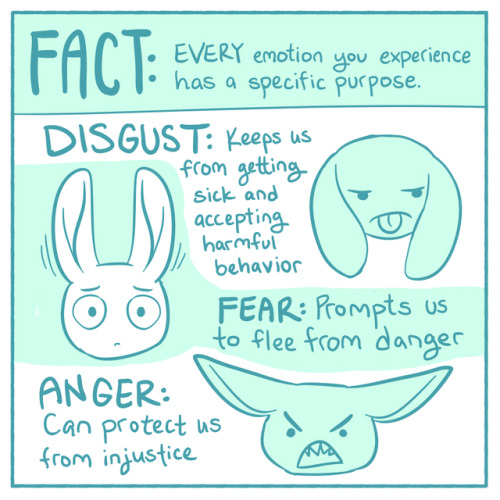


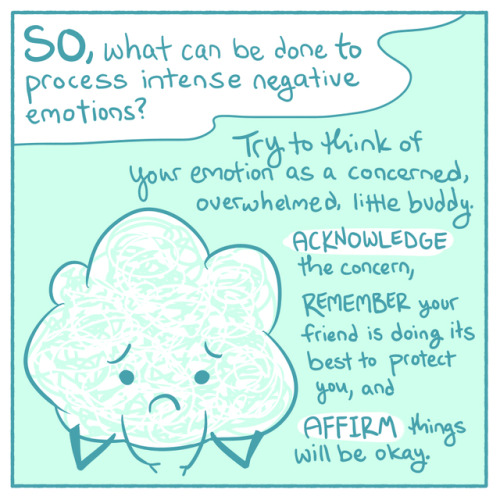
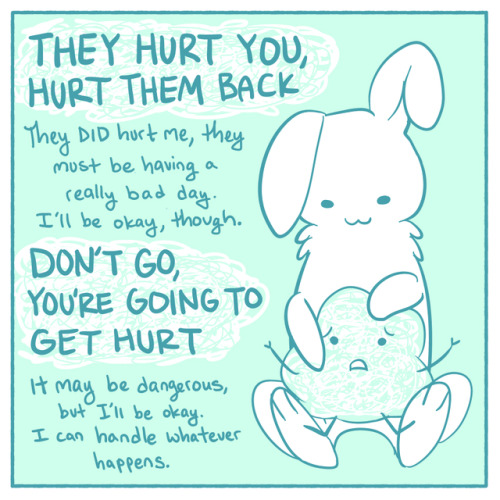
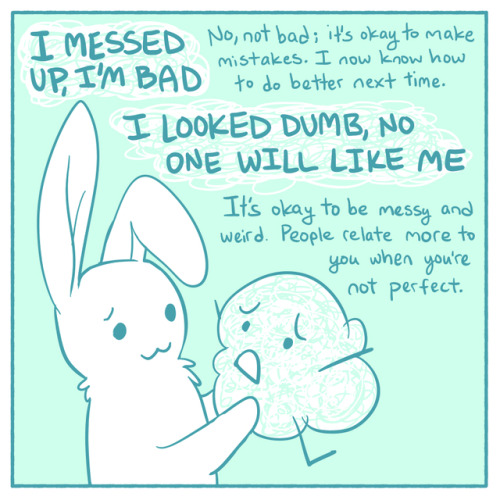


Here’s the second part of mindfulness I learned in therapy that helped me to function after a breakdown. If you, like me, were taught growing up that some emotions were unacceptable, you may need to learn to handle them now as an adult in order to be healthy. All emotions are important indicators that are there to help you. Mindfulness 101 Comic °˖✧*• Shop, Patreon, Book, Mailing List *•. ✧˖°`
So this is just a PSA, y'all should never sign a contract until you read it. I’m talking in rl right now. I just got through reading my employee handbook/service contract and my bosses slipped in a lot of bullshit like telling me I can’t complain about my job on social media, demanding I work off the clock in the name of good service, expects me to show up on time during inclimate weather, and considered disability or religious accommodation a direct threat to the company.
These are all things I took issue with and brought to my employer for further discussion before signing the contract. Most of my coworkers signed without reading, treating it like an internet terms of service contract.
Tl;dr real life is serious shit, lawyers write contracts to protect your employer FROM YOU, read contracts before you sign them - fucking ARGUE about contracts before you sign them
The (Incomplete) Injury Log of the ROTTMNT Movie (SPOILERS AHEAD)

Image ID: Image is a low-resolution screenshot from Rise of the TMNT movie. It takes place during the sequence where the turtles try and fail to interrogate Casey Jones Junior. It depicts Donnie lying comically on the floor, seemingly unconscious after accidentally activating Junior’s grappling hook and being knocked out by it. End ID.
salutations fellow turtle analysts! I am currently (very slowly) working on a fanfic that takes place immediately after [ROTTMNT MOVIE SPOILERS!] Leo gets rescued and, although I know it’s largely unnecessary, I wanted to be as accurate as possible about the various injuries everyone had sustained in the movie. for this, I have gone through the movie yet again and wrote down all the notable occasions of the main crew getting hit or being visibly injured and/or in pain for unclear reasons.
some clarifications and warnings before I jump into the readmore
[MORE ROTTMNT MOVIE SPOILERS AHEAD]
1. this log does not contain potential injuries sustained during the first fight with the Krang, EXCEPT for Raph. my reasoning: everyone but Raph got to go home in the escape pods and had a chance to recover somewhat. I think it’s best demonstrated by Splinter - he was majorly hurt during the fight, but seemed to be doing well when Leo and the others left to look for Raph. it could’ve been done to ease on the pressure, for comedic effect, it could just be that the escape pods provide some sort of first aid OR he simply had enough time to recover on his own. and while I don’t think it’s sufficient enough evidence, I choose to believe everyone but Raph did a “reset” so to speak in that scene. if you have counter-arguments regarding this, feel free to dm me about it and I’ll see if I agree and whether I should amend my statement!
2. I tried to keep my notes purely observational in nature, so in some cases I do not state specifically that there is an injury present, but rather describe the character’s expression or gestures and what they might imply (such as, someone holding onto their head or the glowing cracks caused by Mikey’s gateway)
3. feel free to dm me or reply to this post if you think I missed anything! as I’ve said, this log is incomplete, simply because I’m just one guy and can only notice so much on my own. although I don’t promise to amend this post in every case
4. my notes contain some light swearing and take on a more conversational tone in some parts
5. I mean this goes without saying, but there are descriptions of physical injuries, sometimes near-fatal. so take that into account if you decide to read through
6. slightly off-topic, but if there is something wrong with how I did the image ID’s or if there are general issues with accessibility, please let me know! i don’t know if i’ll be able to fix all of my errors, because I spent the entire day working on this post instead of preparing for my entrance exams, but I’d like to at least try
with all that out of the way, I present to you: The (Incomplete) Injury Log of the Rise of the TMNT Movie! (under the cut because it is ridiculously long)

Image ID: Image is a high-resolution screenshot from Rise of the TMNT movie. It depicts, from left to right, Leo, Mikey, Raph, and Donnie looking at the photoraph that Casey Jones Junior had brought from the future. The Key is drawn on the flip-side of the photograph, but the turtles haven’t seen it just yet. Mikey and Donnie are peaking at it from behind Raph’s back and Leo is standing at a slight distance from the three of them. End ID.
Keep reading
AI disturbance overlays for those who don't have Ibis paint premium. found them on tiktok
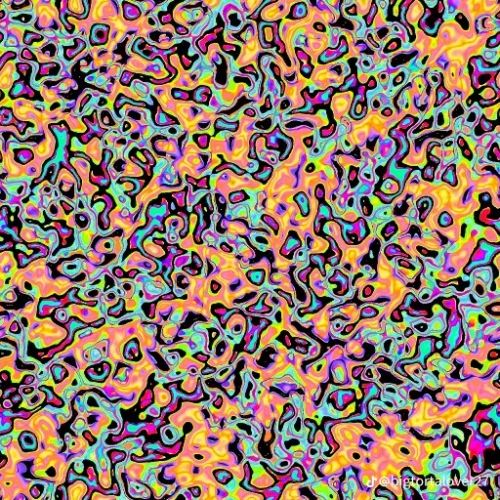
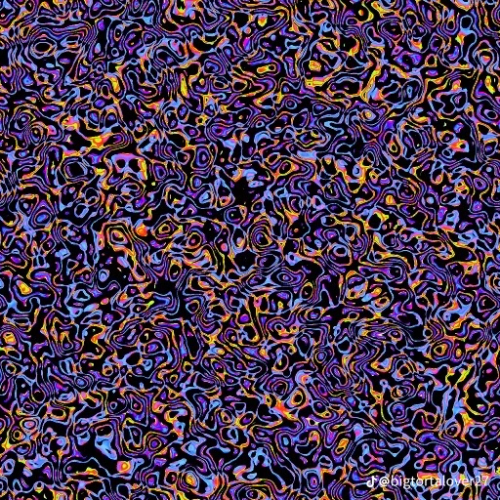

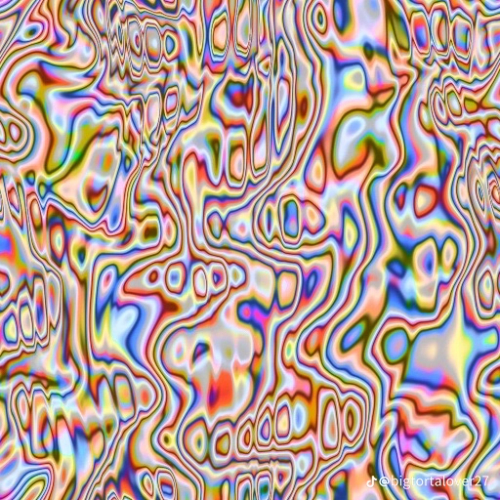
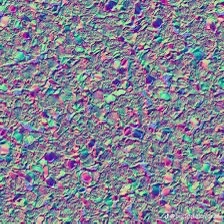

So this fathers day just gone by was also Masaomi's birthday, and I for one think it's absolutely outrageous that nobody pounced on the idea of Dad Masaomi as like a creative prompt or something.
No I won't do it myself. I meant someone good.
Just saving this for future reference...
I have seen some people dont know how to install mods, or how to use them. so i wanted to write a guide how to install them and make your game mod ready, because there are so many great mods, which enhance a already great game
Download Smapi, over on https://www.nexusmods.com/stardewvalley/mods/2400 and extract it. this site requires a account, but its where most stardew mods are. the premium subscription is unnecessary, since 99% of mods will be instantly downloaded
double click whatever file corresponds to your system. i will wirte this for windows. if you use linux, follow the onscreen examples. for windows, press 1, enter, 1, enter and copy the address you see on screen which starts with "c:\" including the ""
open your steam library and rightclick stardew in the sidebar, press properties and paste the address you just copied in the launch options and close the window.
to add mods, right click stardew in your sidebar again, but press browse local files. now open the new "mods" folder. to make it easier to find, right click that folder and press "pin to quick access"
download mods and enjoy the game. go back to the "nexus mods" site and download any mods you like. if you want to start with peak, download stardew valley expanded and its required mods. one of the few mods you have a wait to download. just copy the mod into the mods folder and extract it.
a few recommendations: generic mod config menu and ui info suite
have fun!
.
Awesome job OP.
Please don't mind me asking I keep this for future reference.

Hollow Knight food concept art I’ve done this before, but I wanted to go into more depth on the processes and ingredients used
I’m slowly amassing the ingredients needed to bake a cake
For Future Reference.
words for your fight scenes
Breathe
draw, expire, heave, inhale, puff, suffocate
Catch
intercept, tackle
Climb
arise, ascension, mount, scale, surface
Cut
amputate, ax/axe, bisect, chisel, cleave, crop, cut up, dent, dissect, engrave, etch, fell, hack, lacerate, mangle, molt, mutilate, notch, peel, scar, scratch, shave, shred, slash, slit, trim, whittle
Dispose
boot, chuck, disposal, dispose of, do away with, elimination, kick out, rejection, scrap, throw away, void
Drop
alight, crash, decline, descent, dive, droop, duck, fall, flop, fumble, go under, keel over, light, percolate, plumb, plunge, sag, settle, sink, slump, stoop, submerge, suspend, thud/thump, tumble, wilt
Hide
ambush, bury, camouflage, conceal, cover, cover-up, cringe, disguise, dissimulate, embed, ensconce, envelop, isolation, lurk, masquerade, palliate, screen, seclusion, sequester, shrink, shut off/shut out, sneak, withhold
Hit
applaud, bang, baste, batter, beat, blindside, boot, buffet, bunt, chip, clash, clip, clout, collide, concussion, crash, cuff, deflect, drive, flail, glance, hammer, jab, jostle, knock, lick, nail, peck, plaudits, pound, punch, rap, scourge, slap, smack, sock, strike, swipe, tap, thud/thump, tip, whack, whip
Hold forcefully
apprehend, cage, clasp, clinch, confinement, constriction, cramp, detain, embrace, enslave, fetters, grasp, gripe, hold, incarcerate, overpower, press, shackle, snatch, strangle, throttle, wrestle
NOTE
The above are concepts classified according to subject and usage. It not only helps writers and thinkers to organize their ideas but leads them from those very ideas to the words that can best express them.
It was, in part, created to turn an idea into a specific word. By linking together the main entries that share similar concepts, the index makes possible creative semantic connections between words in our language, stimulating thought and broadening vocabulary.
Source ⚜ Writing Basics & Refreshers ⚜ On Vocabulary Notes: Fight Scenes (pt. 1) (pt. 2) Word Lists: Fight ⚜ Pain
For Future reference,
List of unique and imaginative types of government that can add depth to your fantasy world:
1. Gerontocracy
A government ruled by the elderly. Wisdom and experience are highly valued, and the oldest members of society hold the most power.
2. Stratocracy
A government led by military leaders. The state and the military are closely intertwined, and military service is often a prerequisite for leadership.
3. Timocracy
A government where only property owners or those with a certain level of wealth can participate in governance. The idea is that those with a stake in the land will govern it wisely.
4. Gynarchy
A society governed by women. Leadership roles are exclusively or predominantly held by females.
5. Noocracy
A government ruled by the wise or intellectuals. Decisions are made based on knowledge, wisdom, and rational thought.
6. Kleptocracy
A corrupt government where leaders exploit national resources and steal; rule by thieves. This often leads to widespread corruption and inequality.
7. Cyberocracy
A futuristic government where information technology and artificial intelligence play a central role in governance. Decisions are made based on data and algorithms.
8. Hologarchy
A decentralized government where power is distributed equally among all members of society. There is no central authority, and decisions are made collectively.
9. Ecocracy
A government that prioritizes ecological and environmental concerns above all else. Policies are designed to protect and sustain the natural world.
10. Psionocracy
A government ruled by individuals with psychic or mental powers. Leadership is determined by one's mental abilities and control over psychic forces.
11. Syndicracy
A government run by syndicates or groups of people with common interests, such as trade unions or professional associations. Power is distributed among various syndicates.
12. Cryptocracy
A secretive government where the true rulers are hidden from the public. The real power lies with a shadowy group that operates behind the scenes.
13. Technomancy
A blend of technology and magic, where the government is ruled by technomancers who use both technological and magical means to govern.
14. Animocracy
A government where animals or animal spirits play a central role in decision-making. This could involve druids or shamans who communicate with animal spirits.
15. Necrocracy
A government where the dead or undead hold power. This could involve necromancers who use their control over the dead to maintain order.
16. Elementocracy
A government where rulers are chosen based on their mastery of elemental forces (earth, water, fire, air). Each element might have its own representative or leader.
17. Dreamocracy
A society governed by those who can control or influence dreams. Decisions might be made in a dream realm, affecting the waking world.
18. Symbiocracy
A government where humans and another species (like elves, dwarves, or even sentient plants) share power equally. Cooperation and mutual benefit are key.
19. Chronocracy
A government where time manipulation is central. Leaders might be time travelers or have the ability to foresee future events and make decisions accordingly.
20. Shadow Council
A secretive group that rules from the shadows, with their identities unknown to the public. They might use spies and covert operations to maintain control.
21. Guildocracy
A government run by various guilds, each representing different trades or professions. Power is distributed among the guild leaders.
22. Arcane Senate
A council of powerful mages who govern based on their magical prowess and knowledge. Each member might represent a different school of magic.
23. Beastocracy
A society where intelligent beasts or mythical creatures hold power. This could include dragons, griffins, or other fantastical beings.
24. Celestocracy
A government ruled by celestial beings or those who claim divine right from the stars. Astrology and celestial events might influence decisions.
25. Labyrinthine Council
A government where the ruling council resides in a vast, ever-changing labyrinth. Only those who can navigate the maze can reach the leaders.
26. Mirrorocracy
A society where decisions are made by reflections or alternate versions of the leaders from parallel dimensions. This could involve magical mirrors or portals.
27. Puppetocracy
A government where the rulers are figureheads controlled by unseen puppet masters. The true power lies with those pulling the strings.
28. Songocracy
A society where music and song are central to governance. Leaders might be chosen based on their musical abilities, and laws are sung rather than written.
29. Crystal Dominion
A government where rulers derive their power from magical crystals. These crystals might grant various abilities or influence the land.
30. Ethereocracy
A government where spirits or ethereal beings hold sway. This could involve ghosts, ancestral spirits, or other supernatural entities.
31. Mercantocracy
A government ruled by merchants and traders. Economic policies are designed to maximize trade and commerce, with leaders often being the wealthiest traders.
32. Coinclave
A council of bankers and financiers who control the economy. Decisions are made to ensure financial stability and growth, with a focus on banking and investments.
33. Tradeguild Dominion
A realm where powerful trade guilds hold sway. Each guild represents a different industry, and they work together to regulate trade and industry standards.
34. Barterocracy
A society where barter and trade are the primary means of exchange. Leaders are chosen based on their ability to negotiate and manage resources effectively.
35. Resource Syndicate
A government where control is based on the management of natural resources. Leaders are experts in mining, agriculture, and resource distribution.
36. Artisan Assembly
A government led by master craftsmen and artisans. Economic policies focus on the production and trade of high-quality goods and craftsmanship.
37. Agrarian Council
A society governed by those who control agricultural production. Policies are centered around farming, food distribution, and sustainable agriculture.
38. Guilded Senate
A ruling body composed of representatives from various economic guilds. Each guild has a say in the governance based on their economic contributions.
39. Commodocracy
A government where power is based on the control of key commodities, such as gold, spices, or magical resources. Leaders are those who control these valuable goods.
40. Marketocracy
A society where the free market dictates governance. Leaders are chosen based on their success in the marketplace, and economic freedom is highly valued.
41. Tradewind Dominion
A government where trade routes and shipping lanes are the lifeblood of the economy. Leaders are often powerful ship captains or trade route managers.
42. Coincouncil
A council of wealthy individuals who use their resources to influence governance. Economic policies are designed to benefit the wealthy elite.
43. Craftocracy
A government where skilled artisans and craftsmen hold power. The economy is driven by the production and trade of artisanal goods.
44. Miner’s Syndicate
A society governed by those who control mining operations. Economic policies focus on the extraction and trade of minerals and precious metals.
45. Spice Dominion
A government where control of rare and valuable spices dictates power. Leaders are those who manage spice production and trade.
-------
🔥 BONUS ALERT!🔥
🚀 Unlock the Ultimate Fantasy Worldbuilding Book Series Planner 🚀
Ready to take your worldbuilding to the NEXT LEVEL? You can grab this game-changing planner that will revolutionize your writing process!
📚 Organize, Create, and Conquer!📚
Store ALL your writing resources in one place and make worldbuilding EFFORTLESS and INTERACTIVE. With 25+ stunning fantasy illustrations and an editable wanted poster on Canva, this planner is your go-to SERIES BIBLE.
🌍 Craft Your Epic World Like a Pro!🌍
Not only does it include worldbuilding worksheets, but it also guides you step by step on how to create a COMPELLING world. Plus, you'll get a pre-set writer planner that takes you from idea generation to book publishing!
🎯 Don’t Miss Out! 🎯
Grab yours NOW and elevate your storytelling!







@livyamel
You can write that fainting competition now where your opponent is Dante!
The Anatomy of Passing Out: When, Why, and How to Write It

Passing out, or syncope, is a loss of consciousness that can play a pivotal role in storytelling, adding drama, suspense, or emotional weight to a scene. Whether it’s due to injury, fear, or exhaustion, the act of fainting can instantly shift the stakes in your story.
But how do you write it convincingly? How do you ensure it’s not overly dramatic or medically inaccurate? In this guide, I’ll walk you through the causes, stages, and aftermath of passing out. By the end, you’ll be able to craft a vivid, realistic fainting scene that enhances your narrative without feeling clichéd or contrived.
2. Common Causes of Passing Out
Characters faint for a variety of reasons, and understanding the common causes can help you decide when and why your character might lose consciousness. Below are the major categories that can lead to fainting, each with their own narrative implications.
Physical Causes
Blood Loss: A sudden drop in blood volume from a wound can cause fainting as the body struggles to maintain circulation and oxygen delivery to the brain.
Dehydration: When the body doesn’t have enough fluids, blood pressure can plummet, leading to dizziness and fainting.
Low Blood Pressure (Hypotension): Characters with chronic low blood pressure may faint after standing up too quickly, due to insufficient blood reaching the brain.
Intense Pain: The body can shut down in response to severe pain, leading to fainting as a protective mechanism.
Heatstroke: Extreme heat can cause the body to overheat, resulting in dehydration and loss of consciousness.
Psychological Causes
Emotional Trauma or Shock: Intense fear, grief, or surprise can trigger a fainting episode, as the brain becomes overwhelmed.
Panic Attacks: The hyperventilation and increased heart rate associated with anxiety attacks can deprive the brain of oxygen, causing a character to faint.
Fear-Induced Fainting (Vasovagal Syncope): This occurs when a character is so afraid that their body’s fight-or-flight response leads to fainting.
Environmental Causes
Lack of Oxygen: Situations like suffocation, high altitudes, or enclosed spaces with poor ventilation can deprive the brain of oxygen and cause fainting.
Poisoning or Toxins: Certain chemicals or gasses (e.g., carbon monoxide) can interfere with the body’s ability to transport oxygen, leading to unconsciousness.
3. The Stages of Passing Out
To write a realistic fainting scene, it’s important to understand the stages of syncope. Fainting is usually a process, and characters will likely experience several key warning signs before they fully lose consciousness.
Pre-Syncope (The Warning Signs)
Before losing consciousness, a character will typically go through a pre-syncope phase. This period can last anywhere from a few seconds to a couple of minutes, and it’s full of physical indicators that something is wrong.
Light-Headedness and Dizziness: A feeling that the world is spinning, which can be exacerbated by movement.
Blurred or Tunnel Vision: The character may notice their vision narrowing or going dark at the edges.
Ringing in the Ears: Often accompanied by a feeling of pressure or muffled hearing.
Weakness in Limbs: The character may feel unsteady, like their legs can’t support them.
Sweating and Nausea: A sudden onset of cold sweats, clamminess, and nausea is common.
Rapid Heartbeat (Tachycardia): The heart races as it tries to maintain blood flow to the brain.
Syncope (The Loss of Consciousness)
When the character faints, the actual loss of consciousness happens quickly, often within seconds of the pre-syncope signs.
The Body Going Limp: The character will crumple to the ground, usually without the ability to break their fall.
Breathing: Breathing continues, but it may be shallow and rapid.
Pulse: While fainting, the heart rate can either slow down dramatically or remain rapid, depending on the cause.
Duration: Most fainting episodes last from a few seconds to a minute or two. Prolonged unconsciousness may indicate a more serious issue.
Post-Syncope (The Recovery)
After a character regains consciousness, they’ll typically feel groggy and disoriented. This phase can last several minutes.
Disorientation: The character may not immediately remember where they are or what happened.
Lingering Dizziness: Standing up too quickly after fainting can trigger another fainting spell.
Nausea and Headache: After waking up, the character might feel sick or develop a headache.
Weakness: Even after regaining consciousness, the body might feel weak or shaky for several hours.
4. The Physical Effects of Fainting
Fainting isn’t just about losing consciousness—there are physical consequences too. Depending on the circumstances, your character may suffer additional injuries from falling, especially if they hit something on the way down.
Impact on the Body
Falling Injuries: When someone faints, they usually drop straight to the ground, often hitting their head or body in the process. Characters may suffer cuts, bruises, or even broken bones.
Head Injuries: Falling and hitting their head on the floor or a nearby object can lead to concussions or more severe trauma.
Scrapes and Bruises: If your character faints on a rough surface or near furniture, they may sustain scrapes, bruises, or other minor injuries.
Physical Vulnerability
Uncontrolled Fall: The character’s body crumples or falls in a heap. Without the ability to brace themselves, they are at risk for further injuries.
Exposed While Unconscious: While fainted, the character is vulnerable to their surroundings. This could lead to danger in the form of attackers, environmental hazards, or secondary injuries from their immediate environment.
Signs to Look For While Unconscious
Shallow Breathing: The character's breathing will typically become shallow or irregular while they’re unconscious.
Pale or Flushed Skin: Depending on the cause of fainting, a character’s skin may become very pale or flushed.
Twitching or Muscle Spasms: In some cases, fainting can be accompanied by brief muscle spasms or jerking movements.
5. Writing Different Types of Fainting
There are different types of fainting, and each can serve a distinct narrative purpose. The way a character faints can help enhance the scene's tension or emotion.
Sudden Collapse
In this case, the character blacks out without any warning. This type of fainting is often caused by sudden physical trauma or exhaustion.
No Warning: The character simply drops, startling both themselves and those around them.
Used in High-Tension Scenes: For example, a character fighting in a battle may suddenly collapse from blood loss, raising the stakes instantly.
Slow and Gradual Fainting
This happens when a character feels themselves fading, usually due to emotional stress or exhaustion.
Internal Monologue: The character might have time to realize something is wrong and reflect on what’s happening before they lose consciousness.
Adds Suspense: The reader is aware that the character is fading but may not know when they’ll drop.
Dramatic Fainting
Some stories call for a more theatrical faint, especially in genres like historical fiction or period dramas.
Exaggerated Swooning: A character might faint from shock or fear, clutching their chest or forehead before collapsing.
Evokes a Specific Tone: This type of fainting works well for dramatic, soap-opera-like scenes where the fainting is part of the tension.
6. Aftermath: How Characters Feel After Waking Up
When your character wakes up from fainting, they’re not going to bounce back immediately. There are often lingering effects that last for minutes—or even hours.
Physical Recovery
Dizziness and Nausea: Characters might feel off-balance or sick to their stomach when they first come around.
Headaches: A headache is a common symptom post-fainting, especially if the character hits their head.
Body Aches: Muscle weakness or stiffness may persist, especially if the character fainted for a long period or in an awkward position.
Emotional and Mental Impact
Confusion: The character may not remember why they fainted or what happened leading up to the event.
Embarrassment: Depending on the situation, fainting can be humiliating, especially if it happened in front of others.
Fear: Characters who faint from emotional shock might be afraid of fainting again or of the situation that caused it.
7. Writing Tips: Making It Believable
Writing a fainting scene can be tricky. If not handled properly, it can come across as melodramatic or unrealistic. Here are some key tips to ensure your fainting scenes are both believable and impactful.
Understand the Cause
First and foremost, ensure that the cause of fainting makes sense in the context of your story. Characters shouldn’t pass out randomly—there should always be a logical reason for it.
Foreshadow the Fainting: If your character is losing blood, suffering from dehydration, or undergoing extreme emotional stress, give subtle clues that they might pass out. Show their discomfort building before they collapse.
Avoid Overuse: Fainting should be reserved for moments of high stakes or significant plot shifts. Using it too often diminishes its impact.
Balance Realism with Drama
While you want your fainting scene to be dramatic, don’t overdo it. Excessively long or theatrical collapses can feel unrealistic.
Keep It Short: Fainting typically happens fast. Avoid dragging the loss of consciousness out for too long, as it can slow down the pacing of your story.
Don’t Always Save the Character in Time: In some cases, let the character hit the ground. This adds realism, especially if they’re fainting due to an injury or traumatic event.
Consider the Aftermath
Make sure to give attention to what happens after the character faints. This part is often overlooked, but it’s important for maintaining realism and continuity.
Lingering Effects: Mention the character’s disorientation, dizziness, or confusion upon waking up. It’s rare for someone to bounce back immediately after fainting.
Reactions of Others: If other characters are present, how do they react? Are they alarmed? Do they rush to help, or are they unsure how to respond?
Avoid Overly Romanticized Fainting
In some genres, fainting is used as a dramatic or romantic plot device, but this can feel outdated and unrealistic. Try to focus on the genuine physical or emotional toll fainting takes on a character.
Stay Away from Clichés: Avoid having your character faint simply to be saved by a love interest. If there’s a romantic element, make sure it’s woven naturally into the plot rather than feeling forced.
8. Common Misconceptions About Fainting
Fainting is often misrepresented in fiction, with exaggerated symptoms or unrealistic recoveries. Here are some common myths about fainting, and the truth behind them.
Myth 1: Fainting Always Comes Without Warning
While some fainting episodes are sudden, most people experience warning signs (lightheadedness, blurred vision) before passing out. This gives the character a chance to notice something is wrong before losing consciousness.
Myth 2: Fainting Is Dramatic and Slow
In reality, fainting happens quickly—usually within a few seconds of the first warning signs. Characters won’t have time for long speeches or dramatic gestures before collapsing.
Myth 3: Characters Instantly Bounce Back
Many stories show characters waking up and being perfectly fine after fainting, but this is rarely the case. Fainting usually leaves people disoriented, weak, or even nauseous for several minutes afterward.
Myth 4: Fainting Is Harmless
In some cases, fainting can indicate a serious medical issue, like heart problems or severe dehydration. If your character is fainting frequently, it should be addressed in the story as a sign of something more severe.
Looking For More Writing Tips And Tricks?
Are you an author looking for writing tips and tricks to better your manuscript? Or do you want to learn about how to get a literary agent, get published and properly market your book? Consider checking out the rest of Quillology with Haya Sameer; a blog dedicated to writing and publishing tips for authors! While you’re at it, don’t forget to head over to my TikTok and Instagram profiles @hayatheauthor to learn more about my WIP and writing journey!
For Future Reference...thank you Original Poster for creating this.
Things Real People Do in Dialogue (For Your Next Story)
Okay, let’s be real—dialogue can make or break a scene. You want your characters to sound natural, like actual humans talking, not robots reading a script. So, how do you write dialogue that feels real without it turning into a mess of awkward pauses and “ums”? Here’s a little cheat sheet of what real people actually do when they talk (and you can totally steal these for your next story):
1. People Interrupt Each Other All the Time In real conversations, nobody waits for the perfect moment to speak. We interrupt, cut each other off, and finish each other's sentences. Throw in some overlaps or interruptions in your dialogue to make it feel more dynamic and less like a rehearsed play.
2. They Don’t Always Say What They Mean Real people are masters of dodging. They’ll say one thing but mean something totally different (hello, passive-aggressive banter). Or they’ll just avoid the question entirely. Let your characters be vague, sarcastic, or just plain evasive sometimes—it makes their conversations feel more layered.
3. People Trail Off... We don’t always finish our sentences. Sometimes we just... stop talking because we assume the other person gets what we’re trying to say. Use that in your dialogue! Let a sentence trail off into nothing. It adds realism and shows the comfort (or awkwardness) between characters.
4. Repeating Words Is Normal In real life, people repeat words when they’re excited, nervous, or trying to make a point. It’s not a sign of bad writing—it’s how we talk. Let your characters get a little repetitive now and then. It adds a rhythm to their speech that feels more genuine.
5. Fillers Are Your Friends People say "um," "uh," "like," "you know," all the time. Not every character needs to sound polished or poetic. Sprinkle in some filler words where it makes sense, especially if the character is nervous or thinking on their feet.
6. Not Everyone Speaks in Complete Sentences Sometimes, people just throw out fragments instead of complete sentences, especially when emotions are high. Short, choppy dialogue can convey tension or excitement. Instead of saying “I really think we need to talk about this,” try “We need to talk. Now.”
7. Body Language Is Part of the Conversation Real people don’t just communicate with words; they use facial expressions, gestures, and body language. When your characters are talking, think about what they’re doing—are they fidgeting? Smiling? Crossing their arms? Those little actions can add a lot of subtext to the dialogue without needing extra words.
8. Awkward Silences Are Golden People don’t talk non-stop. Sometimes, they stop mid-conversation to think, or because things just got weird. Don’t be afraid to add a beat of awkward silence, a long pause, or a meaningful look between characters. It can say more than words.
9. People Talk Over Themselves When They're Nervous When we’re anxious, we tend to talk too fast, go back to rephrase what we just said, or add unnecessary details. If your character’s nervous, let them ramble a bit or correct themselves. It’s a great way to show their internal state through dialogue.
10. Inside Jokes and Shared History Real people have history. Sometimes they reference something that happened off-page, or they share an inside joke only they get. This makes your dialogue feel lived-in and shows that your characters have a life beyond the scene. Throw in a callback to something earlier, or a joke only two characters understand.
11. No One Explains Everything People leave stuff out. We assume the person we’re talking to knows what we’re talking about, so we skip over background details. Instead of having your character explain everything for the reader’s benefit, let some things go unsaid. It’ll feel more natural—and trust your reader to keep up!
12. Characters Have Different Voices Real people don’t all talk the same way. Your characters shouldn’t either! Pay attention to their unique quirks—does one character use slang? Does another speak more formally? Maybe someone’s always cutting people off while another is super polite. Give them different voices and patterns of speech so their dialogue feels authentic to them.
13. People Change the Subject In real life, conversations don’t always stay on track. People get sidetracked, jump to random topics, or avoid certain subjects altogether. If your characters are uncomfortable or trying to dodge a question, let them awkwardly change the subject or ramble to fill the space.
14. Reactions Aren’t Always Immediate People don’t always respond right away. They pause, they think, they hesitate. Sometimes they don’t know what to say, and that delay can speak volumes. Give your characters a moment to process before they respond—it’ll make the conversation feel more natural.
Important note: Please don’t use all of these tips in one dialogue at once.
For future reference
Soft Gestures for Comfort
Bringing them a blanket when they’re curled up on the couch.
Whispering, "It’s okay, I’m here," when they wake up from a bad dream.
Stroking their hair gently when they’re lying on your lap.
Running a warm bath for them after a tough day.
Holding them close and saying, "I’ve got you," when they’re upset.
Preparing their favorite comfort food when they’re feeling low.
Turning off their alarm and letting them sleep in when they’re exhausted.
Reading their favorite book to them before bed.
Playing their favorite soothing music to help them relax.
Just sitting in silence with them, letting them know your presence is their safe space.
